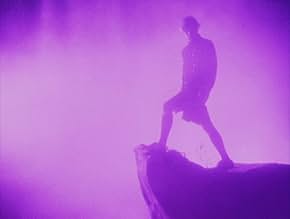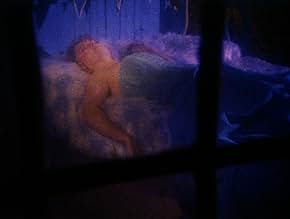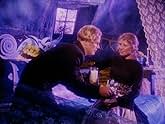I really like Maddin. I like the way he thinks visually first. Narrative is not only woven into and communicated by cinematic means, but his characters live in a similar world. They experience the world, the same way we experience the film: by what some call a surrealistic dream world. It is not. Rather it is a world wholly driven by laws, laws we understand because they are rooted in film worlds we have visited.
I have two of his films on my "must experience before you die" list. This one is narratively less subtle and powerful than those. He makes a trade-off by investing in what is often - including here - called "German Expressionism." Actually, the model is German mountain films, a quite different beast: one that is more genuinely pre-noir.
The world behind those films has a people in tune with a nature that limits their lives, often controlling. American noir would later merge this collection of laws with the narrative conventions built into the act of viewing. What this film does is insert itself before that development. It is pre-noir tragedy with noir-like conventions, cast using those German pre- noir images.
It is a stretch to merge German notions of superior harmony with the mountain homeland with the Nazi comfort with the cruelty of nature. But heck, others do; there is the tradition of Riefenstahl's mountain films and then her similarly inspired Nazi propaganda; and after all, films like this encourage such stretches. And a similar stretch goes in the "White Ribbon" direction, with nature and its German bond with sexual repression behind what happened. Herzog continues this even today.But all that is predicable and easy to read, compared to Maddin's deeper stuff.
Ted's Evaluation -- 3 of 3: Worth watching.

























